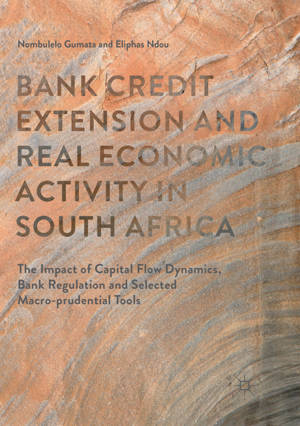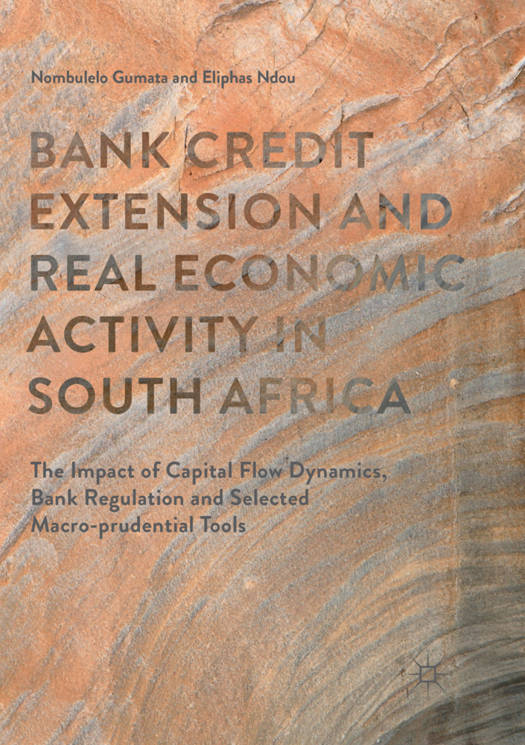
- Retrait gratuit dans votre magasin Club
- 7.000.000 titres dans notre catalogue
- Payer en toute sécurité
- Toujours un magasin près de chez vous
- Retrait gratuit dans votre magasin Club
- 7.000.0000 titres dans notre catalogue
- Payer en toute sécurité
- Toujours un magasin près de chez vous
Bank Credit Extension and Real Economic Activity in South Africa
The Impact of Capital Flow Dynamics, Bank Regulation and Selected Macro-Prudential Tools
Nombulelo Gumata, Eliphas NdouDescription
This book presents empirical evidence that supports and facilitates a practical, integrated approach to how bank regulatory and selected macro-prudential tools interact with monetary policy to achieve price and financial stability. The empirical results contained in various chapters accompany in-depth historical analysis and counterfactual scenarios that enable proper policy evaluation and the interaction of bank regulatory, macro-prudential and monetary policy tools in South Africa. The presented evidence also identifies financial asset boom and bust episodes and the associated costly output losses. In addition, the authors explore the amplification of credit dynamics by commodity prices and sector credit re-allocation due to capital inflows shocks. The book's empirical analysis uses a wide range of statistical and econometric approaches on granular data and economic variables to derive policy implications and recommendations. This in-depth quantitative analysis includesdetermining inverse transmission of global liquidity, as well as the effects of capital flows, lending-rate margins, financial regulatory uncertainty, the National Credit Act, bank capital-adequacy ratios, bank loan loss provisions, loan-to-value ratios and repayment-to-income ratios on the macro-economy.
Spécifications
Parties prenantes
- Auteur(s) :
- Editeur:
Contenu
- Nombre de pages :
- 582
- Langue:
- Anglais
Caractéristiques
- EAN:
- 9783319828527
- Date de parution :
- 18-08-18
- Format:
- Livre broché
- Format numérique:
- Trade paperback (VS)
- Dimensions :
- 148 mm x 210 mm
- Poids :
- 743 g

Les avis
Nous publions uniquement les avis qui respectent les conditions requises. Consultez nos conditions pour les avis.






